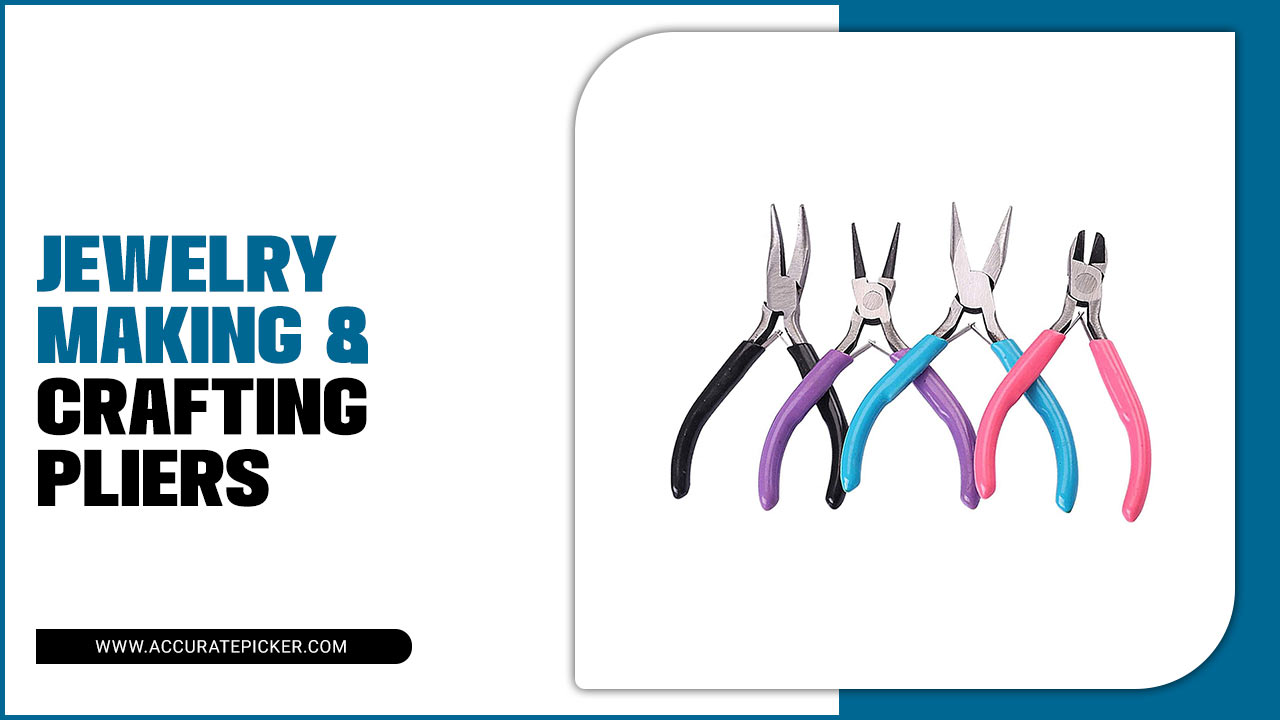When choosing a fender material for marine use, it is important to consider a variety of factors such as the environmental conditions, the size of the boat, and the type of vessel. The right fender material must be able to withstand the marine environment and provide the necessary cushioning and protection against impacts.
This article will provide an overview of the different types of fender materials, their advantages and disadvantages, and tips for selecting the right one for your needs. Additionally, it will discuss the importance of proper installation and maintenance for optimal performance. With the right knowledge and preparation, you can choose the right fender material for your marine needs and ensure safe use of your vessel.
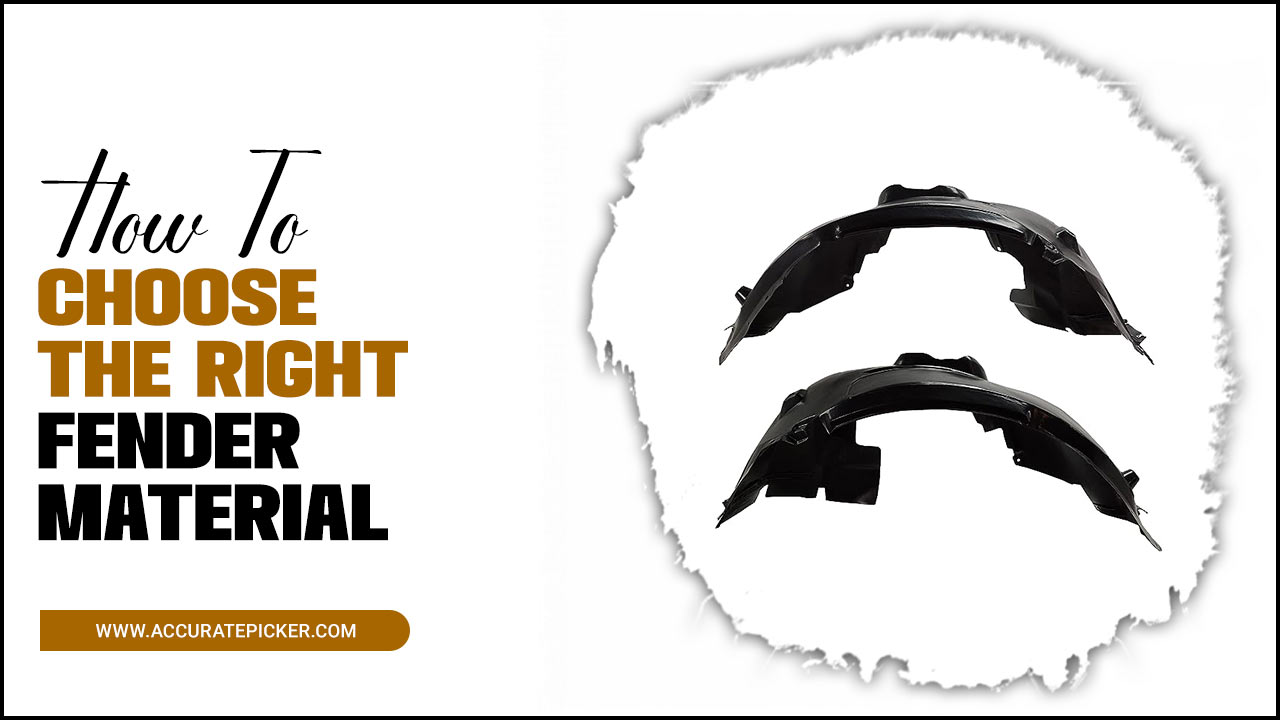
Choosing The Right Fender Material For Marine Use

Choosing the right fender material for marine use is an important decision. With so many materials available, it can be difficult to know which one is best suited for your needs.
This article will provide an overview of the different types of fender materials available and the factors to consider when selecting the right one for your boat. We will discuss the advantages and disadvantages of each material, as well as the best applications for each type. Finally, we will provide some tips on how to choose the right fender material for marine use.
Factors To Consider

When choosing a fender material for marine use, there are several factors to consider. First, the environment you will be using the fender in must be taken into account. Different materials will be better suited for different environments – for instance, polyurethane is a good choice for saltwater, while PVC is great for freshwater. Additionally, the size, weight, and shape of the boat must be taken into consideration.
Some materials have higher weight limits or can stretch to fit larger boats, while others may not be suitable for larger vessels. Lastly, the budget available is also important; some materials may be more expensive and not suitable for smaller budgets. Choosing the right fender material is an important decision, so make sure to take all of these factors into account.
Durability
When choosing a fender material for marine use, it is important to consider its durability. Many fender materials are available, with each offering different levels of durability. Polyethylene is one of the most durable materials available and can withstand heavy impacts from waves and other marine traffic.
Rubber fenders are also popular choices due to their flexibility and ability to absorb impacts. For maximum protection, metal fenders are a good choice as they are resistant to water damage and can last for years. Ultimately, it is important to choose a material that can withstand the harsh marine environment and provide the necessary protection for vessels.
Maintenance
Marine environments are tough on fenders, which must be able to withstand frequent contact with salt water, sun, and extreme temperatures. Therefore, selecting the right material for your fenders is essential to ensuring their longevity.
Different materials will have varying levels of maintenance requirements, so you should first consider how much time and effort you are able to dedicate to maintaining your fenders. Polyvinyl chloride (PVC) is a low-maintenance option, as it is resistant to salt water and most chemicals.
It is also lightweight and flexible, making it relatively easy to install. Fiberglass is also low-maintenance but is slightly heavier and more expensive than PVC. Rubber is another option, but it is more susceptible to wear and tear and requires more frequent cleaning and conditioning. Finally, stainless steel is a very durable material, but it requires regular cleaning and polishing to maintain its appearance.
Cost
Cost is an important factor when choosing a fender material for marine use. There are a variety of materials available, each with its own advantages and disadvantages in terms of cost. Some materials, such as PVC, are generally more affordable than others, such as rubber or foam.
However, the cost of the material is only one factor to consider when selecting the right fender material for your needs. It is important to also consider the durability and performance of the material as well as the environment in which it will be used. The cost of installation and maintenance should also be taken into account, as these can affect the overall cost of the fender solution. It is important to research the materials available and compare their costs and benefits to find the best fit for your application and budget.
Environmental Impact
When selecting a fender material for marine use, it is important to consider its environmental impact. Many materials used for traditional fenders, such as PVC and rubber, are made of petroleum-based products and are not biodegradable. Some fender materials are designed to be more eco-friendly, such as those made from recycled plastics and natural fibers.
These materials are designed to be more sustainable and reduce plastic pollution. Additionally, some fender materials are designed to be more durable, such as those made from polyurethane, which can last for many years without needing to be replaced. When selecting a fender material, it is important to find one that is both environmentally friendly and durable.
Different Types Of Fender Materials
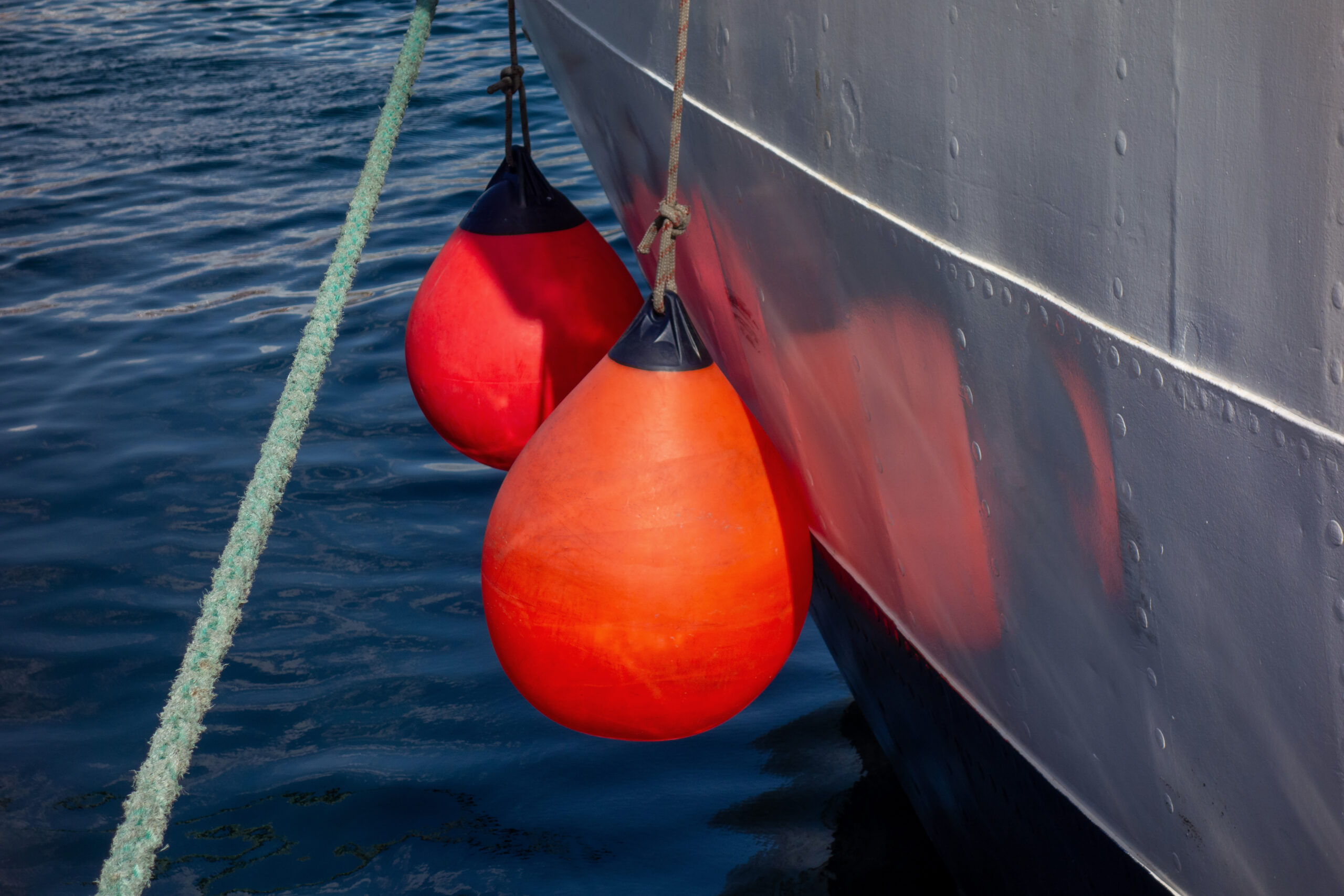
When it comes to choosing fender material for marine use, there are a few different types of materials to consider. Firstly, polypropylene is a great choice for marine use as it is lightweight, strong, and highly resistant to the elements. Additionally, polyurethane is an excellent option for marine use as it is highly durable and resistant to abrasion and tearing.
Lastly, vinyl is a great option for marine use as it is highly resistant to water and other environmental conditions. All of these materials are great options for marine use, so it is important to consider your specific needs and preferences when selecting the right fender material for your vessel.
1.Foam Fenders
Foam fenders are a great option for marine use, as they are lightweight and provide excellent protection. They are also highly durable, with some brands even offering a lifetime guarantee. Foam fenders are usually made from either closed cell polyethylene or urethane foam, which is resistant to water, UV rays, and other environmental factors.
When choosing a foam fender, be sure to consider the size, shape, and type of material used, as these all affect the performance. Additionally, make sure to choose a reputable brand that offers a warranty and quality assurance. With the right foam fender, you can rest assured your vessel will be well-protected.
2.Pvc Fenders
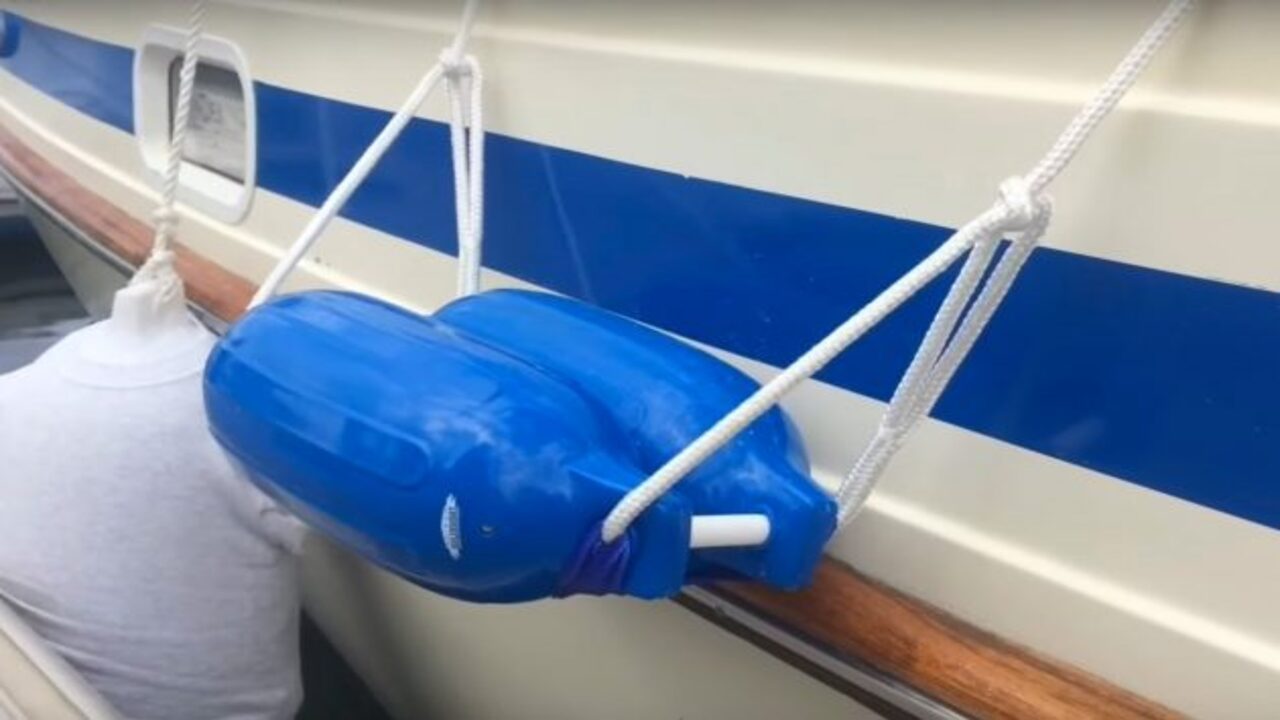
PVC fenders are a popular choice for marine use due to their durability, affordability, and ease of installation. They are also resistant to corrosion and saltwater, making them ideal for vessels that will spend a lot of time in the water. PVC fenders also come in a variety of colors and sizes, so they can be used to customize the look of your boat. Additionally, PVC is lightweight, which makes it easy to install and remove.
PVC fenders also require minimal maintenance and can last for years when properly cared for. However, it is important to remember that PVC is not as strong as other materials and may require more frequent replacement.
3.Rubber Fenders
Rubber fenders are a popular choice for marine use because of their flexibility and durability. They are designed to absorb the energy of a vessel’s impact against a dock or other structure, thereby reducing the risk of damage. Rubber fenders come in various shapes, sizes and hardness levels, allowing you to find the right one for your specific application.
They can also be combined with other materials such as steel, wood, and plastic for added strength and flexibility. When choosing the right rubber fender for your application, consider the size of your vessel, the type of mooring system you have, and the expected conditions in your environment.
Additionally, make sure to check the manufacturer’s specifications for material hardness and durability. With the right fender material, you can ensure your boat and dock are protected.
4.Hybrid Fenders
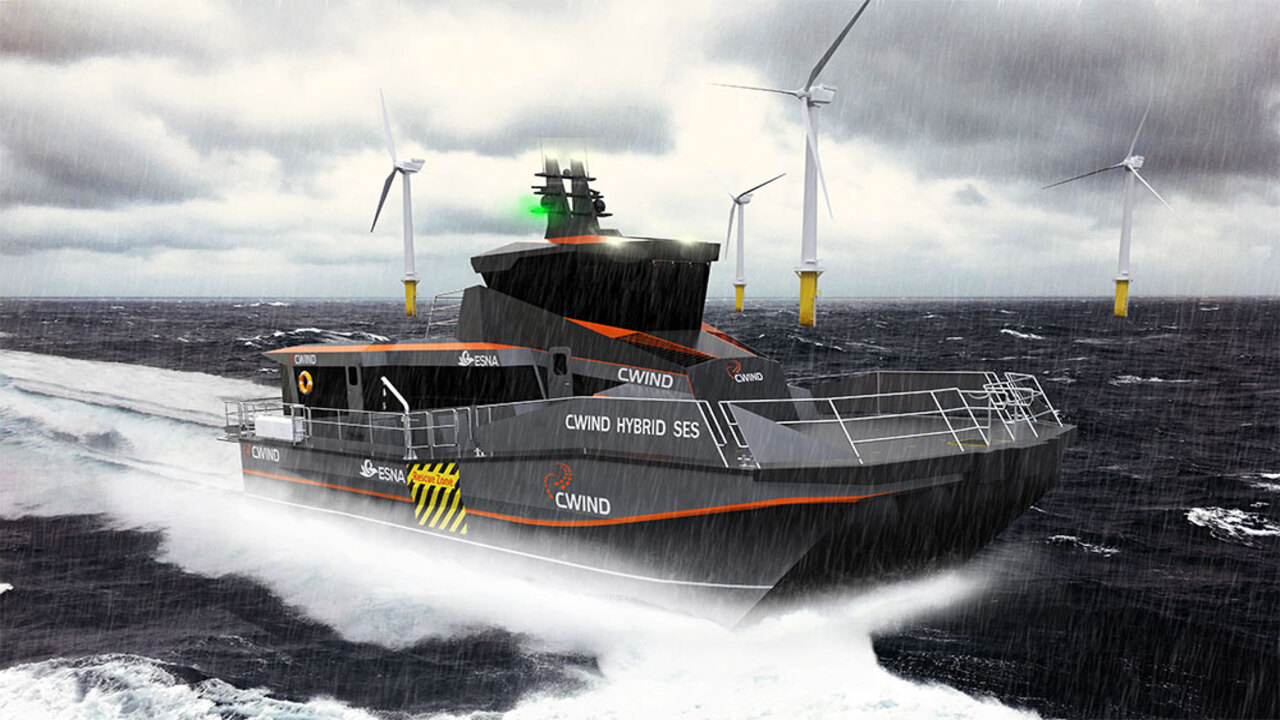
Hybrid fenders are a great choice for marine use, combining the strength of rubber and the durability of plastic. They are designed to be more resistant to abrasion and punctures than traditional rubber fenders and can be used in a variety of marine settings.
They are also much lighter than rubber, so they can be used in a variety of applications, from small boats to large ships. Hybrid fenders are also more cost-effective than traditional rubber fenders, making them a great option for those who need protection at a lower price point.
When it comes to choosing a hybrid fender, it’s important to consider the type of material, the size of the boat, and the environment it will be used in. It’s also important to make sure the material is compatible with the boat’s hull, so it can provide maximum protection.
Safety Considerations

When it comes to marine use, safety is paramount. The right fender material can help protect both the vessel and the dock. While there are a few materials to choose from, there are some key considerations to keep in mind.
First, look for a material that is highly resistant to UV exposure, salt water, and the elements. Rubbers, polyurethanes, and textiles have all proven to be effective materials for marine fenders. Additionally, the material should provide good compression strength and be able to withstand impacts from vessels. To ensure durability, opt for a material that can be easily repaired if necessary.
Finally, make sure you select a material that is not prone to degradation or corrosion. With the right material, you can be confident that your fenders will provide a reliable and safe solution for your marine use.
Quality Testing
Quality testing is an important step to ensure the right material is used for marine applications. Before making a purchase, it is important to know the material and how it will react to environmental conditions. Testing can include physical testing, such as tensile strength tests, impact tests, and corrosion tests.
Additionally, it is important to evaluate the material’s chemical properties, such as its reaction to saltwater and sunlight. Different materials have different resistance to corrosion, which can make them more suitable for certain marine applications. It is important to ensure the material is not just strong enough, but also compatible with the water and air around it. Quality testing is a great way to ensure the right material is chosen for the job.
Manufacturer Reputation
When selecting a fender material for marine use, it is important to consider the reputation of the manufacturer. Research the company to make sure they have a good track record for producing quality products. Look for customer reviews and ask for recommendations from people who have experience with the company.
Check to make sure the manufacturer uses quality materials and their products are manufactured to last. Additionally, make sure that the company offers a warranty and customer service in case you experience any issues. If the manufacturer is not willing to stand behind their product, then it is best to look for an alternative. Taking the time to research the company’s reputation is essential for finding the right fender material for your application.
Installation Guidelines
When it comes to installing fenders for marine use, the material is of utmost importance. It is essential to choose a material that is highly durable and resistant to corrosion, since salt water and long exposure to the sun can cause significant damage. Polyester and Vinyl materials are a popular choice as they are lightweight, yet strong and able to withstand extreme temperatures.
Depending on the size and weight of the vessel, you may also need to consider the cushioning capabilities of the fender material. For example, a softer material such as rubber may be better suited for heavier vessels. Additionally, it is important to check the manufacturer’s specifications to ensure the fender material is suitable for the intended purpose. Finally, consider the installation process to ensure it is both easy and secure.
Insurance Coverage
When it comes to marine use, insurance coverage should be a factor when selecting a fender material. This is especially true for commercial applications. Depending on the type of vessel and the scope of operations, the insurance provider may require a certain type of fender material in order to provide coverage.
Make sure to consult with the insurance provider to determine the specific requirements for coverage. Additionally, it is important to note that the type of material selected must meet both the insurance requirements and the performance demands of the application. Failure to meet either of these criteria could result in reduced coverage or increased premiums.
Conclusion
Choosing the right fender material for marine use is essential for safety and durability. It is important to consider factors such as the type of boat, the environment, and the desired characteristics of the fender. Common materials used in marine fenders include rubber, foam, and PVC. Each material has its own advantages and disadvantages, so it is important to consider the specific needs of the application.
Additionally, it is important to ensure that the chosen material is able to withstand the environmental conditions of the area. With the right research and consideration, finding the right fender material for marine use can be easy.
FAQ’s
1.What Are The Factors To Consider When Selecting Fender Material For Marine Use?
Ans: When selecting fender material for marine use, it is important to consider the environment, the type of vessel, and the impact force the fender needs to absorb. Additionally, factors such as durability, weather resistance, weight, and ease of installation should be taken into consideration.
Fender materials also need to withstand the corrosive effects of saltwater, and must not be adversely affected by ultraviolet light. Finally, the material should be cost-effective and easy to maintain.
2.What Types Of Fender Materials Are Best Suited For Marine Applications?
Ans: The best types of fender materials for marine applications are those that are designed to be durable, resistant to corrosion, and able to withstand marine environments. Materials such as polyethylene, rubber, urethane, PVC, and polypropylene are often used in marine fenders due to their superior resistance to saltwater and UV rays. Additionally, they are lightweight yet strong, and can be easily replaced when necessary.
3.What Are The Benefits And Drawbacks Of Each Type Of Fender Material?
Ans: The benefits of plastic fenders are that they are lightweight and inexpensive, making them a popular choice for many boat owners. They are also easy to install and require little maintenance. The drawbacks are that plastic fenders can easily be damaged by UV rays and can become brittle over time.
Wooden fenders provide a classic and traditional look to a boat, but they require more maintenance than plastic fenders. They are also heavier and more expensive. However, they are more durable and can last longer than plastic fenders. Foam fenders are lightweight and easy to install, but they are also easily damaged and will need to be replaced regularly. They are also not as visually appealing as plastic or wooden fenders.
4.What Types Of Marine Environments Are Best Suited For Each Type Of Fender Material?
Ans: Rubber fenders are best suited for environments with low energy impacts such as sheltered marinas, docks, and piers. Plastic fenders are ideal for marinas with moderate wave and wind action. Metal fenders are best for more exposed marinas with significant wave and wind action. Concrete fenders are the most durable and are used in the most extreme marine environments.
5.What Are The Maintenance Requirements For Different Types Of Fender Materials Used In Marine Applications?
Ans: Maintenance requirements depend on the type of fender material used in marine application. Generally, rubber fenders require periodic inspection and grease lubrication. Polyurethane fenders need to be checked for signs of wear and tear, and may require periodic cleaning. PVC fenders require regular cleaning and inspection for signs of deterioration or damage. Steel fenders require regular inspections and maintenance such as painting and repairs.




